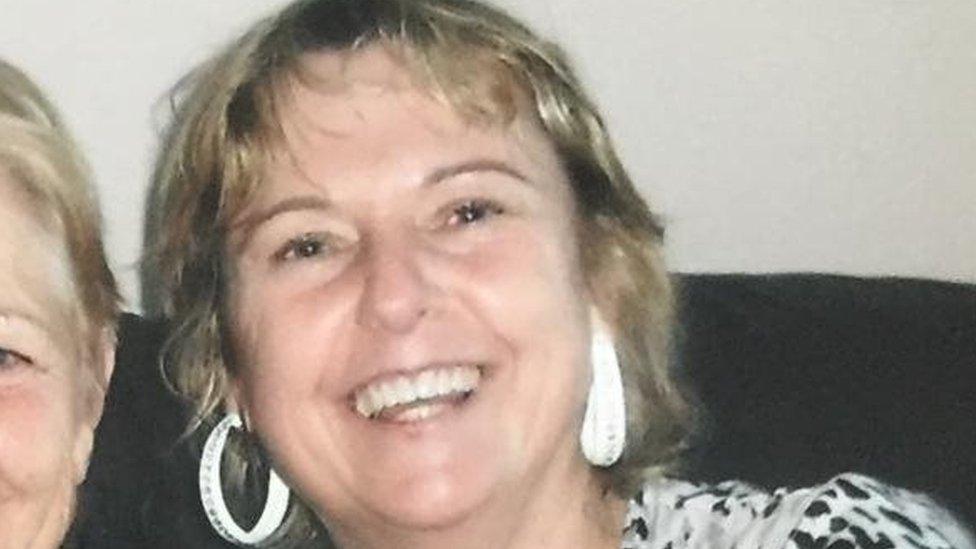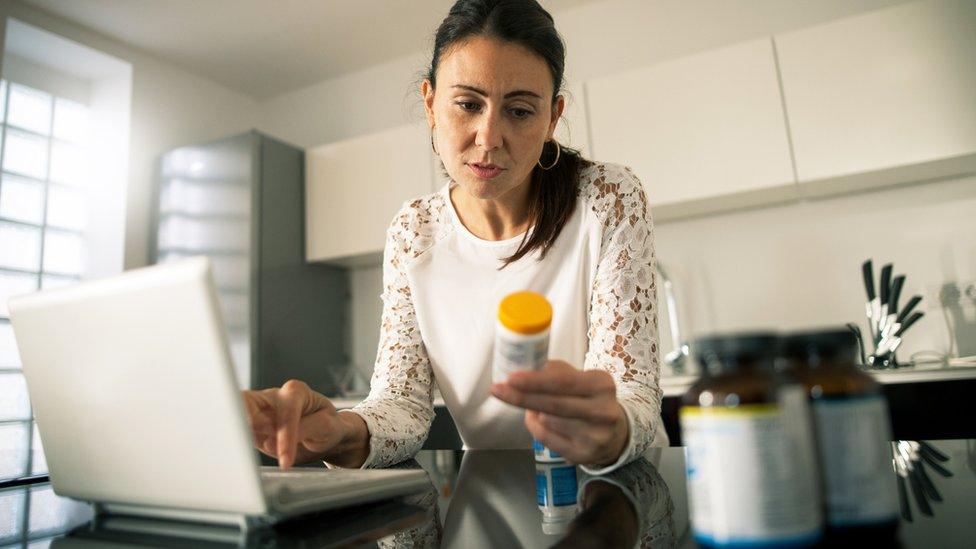Prescription drugs 'contributed to Theresa Feehan's death'
- Published

Theresa Feehan was found dead at her home in London on 12 March 2018
A mum of seven died with toxic levels of prescription drugs in her body after visiting a surgery that had out of date records missing patient conditions.
Theresa Feehan, 58, was given a drug on 10 March 2018 which, combined with other medication, contributed to her death two days later, a coroner said.
The Care Quality Commission (CQC) has since called medicine reviews at Lisson Grove Health Centre "ineffective".
The London surgery said it could not comment due to patient confidentiality.
Mrs Feehan had breathing problems for more than two decades and used home oxygen, a treatment coroner Dr Fiona Wilcox said "was not even recorded on the active problem list" at the surgery.
'Absolute joke'
Dr Wilcox said records were "missing many relevant, serious medical conditions" and drugs that were potentially dangerous to Mrs Feehan because of their respiratory depressant effect had been continued, despite reviews.
She said there was "no proper reason or rationale" for the dose of amitriptyline she was taking which, alongside the dihyrdocodeine she was given on 10 March, was found to have contributed to her death in association with underlying lung disease.

Mrs Feehan, pictured with her father, was found dead by her son Stephen
A CQC report inspection after her death found medication reviews at the surgery "were not well-coded or documented which meant we were not assured that patients were always receiving the correct care, treatment and monitoring for their conditions".
Inspectors discovered "one patient with asthma with no mention of a diagnosis of asthma at all" and another whose prescription was incorrectly coded for depression.

Lisson Grove Health Centre is near Marylebone railway station
Mrs Feehan was found at her home in Marylebone, central London, by her son Stephen, who said she had been "dead many hours".
Mr Feehan, who said his mother was "good to everyone", said he was angry with the surgery after the drugs "killed her" and called it an "absolute joke".
In a statement, the GP surgery said: "We cannot comment on the case due to our obligations to maintain patient confidentiality. The aim of the practice is always to provide the best possible care to all our patients."
- Published6 August 2018
